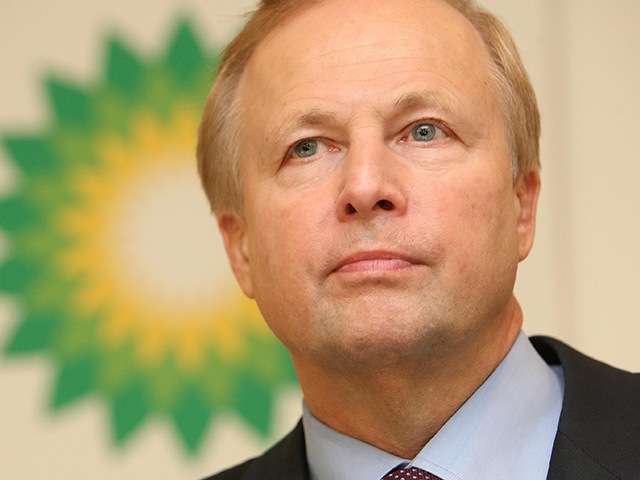
The head of North Sea oil giant BP has warned that Scottish independence would create extra costs for the firm.
Chief executive Bob Dudley admitted Scottish independence left the company facing ‘big uncertainties’ over currency, tax regimes and links to Europe.
“I’m not concerned but there’s enough uncertainty and talk about it and questions raised,” he said.
“It would create extra costs for our business. We have to duplicate the centres and do things, and again the currency question I don’t know the answer to.”
The company is heavily investing in the North Sea, with more than £4billion earmarked for oil projects west of Shetland alone.
He added: “We have got a lot of people in Scotland, we have got a lot of investments in Scotland.
“There’s much debate about what would happen with the currency, and of course whether there are connections with Europe or not.
“These are quite big uncertainties for us, and at the moment we are continuing to invest at a pace because these projects are under way.”
His comments come as the company saw profits fall by more than a fifth, despite increased production from its North Sea assets.
The firm, currently in the midst of a major sell-off of assets, was hit by weaker refining margins and exploration write-offs as it saw annual profits fall to $13.4billion for 2013 – down from 2012’s $17.1billion.
Fourth quarter profits at the British supermajor fell 28% to $2.8billion, compared to 2012.
The oil giant also revealed the bill for the 2010 Gulf of Mexico oil spill had risen once again, with less than £430million remaining from the £12billion trust fund set up to cover costs.
Costs rose a further $200million during the last three months, with the company now waiting on a ruling from US district judge Carl Barbier on penalties relating to the spill.
“BP delivered strong operating performance throughout 2013, with increased asset reliability and major project delivery in both our Upstream and Downstream businesses,” said chief executive Bob Dudley.
“These achievements underpin our financial targets for 2014 and lay the foundation for continued growth in sustainable free cash flow.”
The company, which made seven discoveries in 2014, said it was looking to bring five new projects into production this year, following from the start-up of the Chirag Oil project in Azerbaijan last month – double the number of upstream projects last year.
BP said it was looking for higher production output for 2014, although expected reported production to be lower following the ongoing divestment programme and the end of its onshore concessio last month in Abu Dhabi.
Upstream operations posted profits of $3.9billion for the final quarter, down from $4.4billion a year earlier – but significantly stronger than the company’s downstream operations.
Weaker refining margins in the US and the loss of earnings from two refineries sold off last year saw BP’s downstream arm post a profit of just $70million compared to the $1.4billion the previous year.
The ongoing sell-off of assets is expected to continue apace, following the announcement of a further $10billion divestment programme last October.
So far $1.7billion of assets have been sold off, with more expected over the next two years.
“Capital discipline is central to BP’s strategy,” said Mr Dudley.
“Making the right investment choices, sticking to our capital limits, and actively managing our portfolio in pursuit of long-term value.”
Read more analysis and reaction to BP’s results announcement in tomorrow’s Press and Journal
